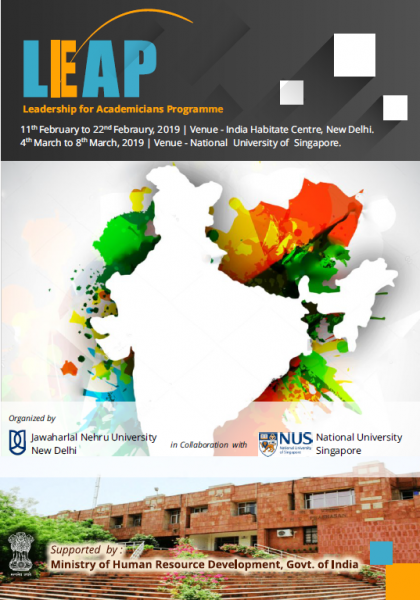Leadership for Academician programme
Leadership for Academicians Programme (LEAP) is a three weeks leadership development training programme (2 weeks domestic and one week foreign training) for second level academic functionaries in public funded higher education institutions. The main objective is to prepare second tier academic heads who are potentially likely to assume leadership roles in the future. The programme would provide senior faculty, with high academic credentials, the required leadership and managerial skills including skills of problem-solving, handling stress, team building work, conflict management, developing communication skills, understanding and coping with the complexity and challenges of governance in HEIs, financial & general administration.
Minimum eligibility criteria
i. At least 8 years of experience in the grade of a full professor as on 10th January 2019.,
ii. Atleast 3 years of experience in administrative position
iii. Not above the age of 55 years on 30th September 2018.
iv. High academic standing preferbly 30 publications in SCOPUS indexed journals / UGC recognized journals.
v. Impeccable integrity.
► Brochure
The interested faculty who fulfills the essential critirea are invited to send their application duly signed by their head of institution along with their updated CVs to leaphrdcjnu@gmail.com
The last date for nomination is 11th January, 2019
Contact for further infomation
Prof. Madhav Govind
Director,
UGC- HRDC Jawaharlal Nehru University
New Delhi
Email: leaphrdcjnu@gmail.com, mgovind11@gmail.com
Phone: 011-26742532 ; Mobile No. 91-9868732956
